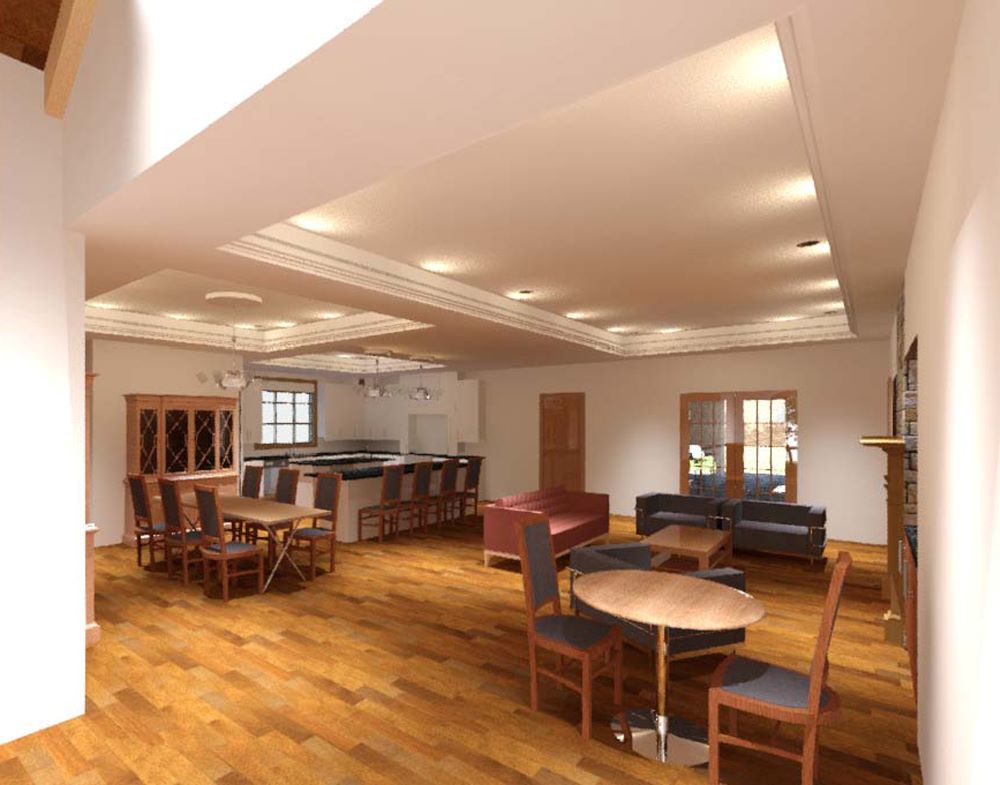When to Hire a Residential Designer
For homeowners looking to remodel, add an extension, or build a custom home on a tighter budget, residential designers are a great fit. They provide creative solutions tailored to your lifestyle and are often more accessible and affordable than architects. Residential designers are ideal for projects that require personalized design but not necessarily the structural expertise of an architect.
When planning a home project, whether a renovation, a new build, or an extension, one of the first decisions you’ll face is whether to hire a licensed architect, a residential designer, or a draftsman. Each professional plays a unique role in the design and construction process, and knowing the differences between them can help you make an informed decision based on your project’s needs, budget, and scope. In this post, we’ll explore the distinctions in skill levels, costs, how they interact with building codes and regulations, and when you might choose one over the other.
1. Skill Levels & Expertise
Licensed Architects
Architects are required to complete a rigorous education and training process, typically including a professional degree in architecture, several years of supervised experience, and passing the Architect Registration Examination (ARE). Architects are not only trained in the art of design but also in structural systems, building codes, accessibility, sustainability, and construction methods. They often lead complex projects, balancing aesthetics with functionality and technical requirements.
Residential Designers
While residential designers may not have formal architectural training, they often specialize in home design and have extensive experience working on residential projects. They focus on creating functional and aesthetically pleasing spaces, but their expertise may be more limited in areas such as structural engineering or advanced building systems. Many residential designers have honed their skills through hands-on experience, working closely with clients, builders, and contractors to design beautiful homes.

Draftsmen
Draftsmen typically focus on the technical side of design, creating detailed drawings and blueprints based on specifications provided by architects or designers. They are skilled in drafting software like AutoCAD or Revit but may not be involved in the creative or conceptual phases of design. Draftsmen are often used for smaller projects or to produce construction documents for straightforward designs.
2. Project Fees & Costs
Licensed Architects
Because of their advanced training and the level of detail they bring to a project, architects generally charge higher fees. Their services often range from 8% to 15% of the total project cost, though this varies based on the complexity and size of the project. While more expensive upfront, hiring an architect can result in long-term savings by optimizing design efficiency, reducing construction errors, and incorporating sustainable solutions.
Residential Designers
Residential designers usually offer more affordable services than architects, with fees often between 3% to 8% of the total project cost. For many homeowners, especially for projects like custom homes or remodels, hiring a residential designer is a cost-effective way to achieve a tailored design that aligns with their lifestyle and budget.
Draftsmen
Draftsmen are typically the most affordable option, often charging by the hour or project, depending on the complexity of the drawings required. Their fees range from $50 to $150 per hour, or a flat rate for a set of plans. However, while cheaper, draftsmen usually don’t offer design services, which may require you to bring your own vision or hire a designer or architect.
3. Building Codes & Legal Regulations
Licensed Architects
Architects are deeply knowledgeable about building codes, zoning laws, and regulations. Their licensure ensures they can sign off on designs that meet legal requirements. This is especially important for larger, more complex projects, or those involving commercial spaces. Architects also carry liability insurance, protecting you from potential legal issues down the line.
Residential Designers
Residential designers are also familiar with local building codes, though they may not be as well-versed in highly complex regulations as architects. They often work with other professionals like structural engineers or architects when necessary to ensure code compliance. However, in some states or municipalities, residential designers may face restrictions on the types of projects they can design.
Draftsmen
Draftsmen are typically not responsible for ensuring code compliance, as they primarily focus on producing technical drawings. They often rely on architects, engineers, or designers to provide the necessary guidance for adhering to local regulations. It’s important to check whether your local laws allow draftsmen to submit drawings for permits, as regulations vary by location.
4. When to Hire an Architect, Residential Designer, or Draftsman
When to Hire a Licensed Architect
If your project is large, complex, or requires innovative design solutions—such as custom homes with unique structural or environmental challenges—hiring a licensed architect is the best option. Architects excel at designing spaces that balance form, function, and technical considerations, and they can also oversee the entire construction process to ensure everything runs smoothly.
When to Hire a Residential Designer
For homeowners looking to remodel, add an extension, or build a custom home on a tighter budget, residential designers are a great fit. They provide creative solutions tailored to your lifestyle and are often more accessible and affordable than architects. Residential designers are ideal for projects that require personalized design but not necessarily the structural expertise of an architect.
When to Hire a Draftsman
If you already have a design in mind or a builder who knows what needs to be done, and you just need someone to formalize the plans for permitting or construction, a draftsman may be all you need. Draftsmen are particularly useful for smaller projects like interior renovations or simple home additions.
Checkout this free Residential Design Project Estimate
Conclusion
Choosing between a licensed architect, residential designer, or draftsman depends largely on the complexity, scale, and budget of your project. Each professional offers a unique set of skills that can be leveraged at different stages of design and construction. Understanding their differences will help you select the right person for your project, ensuring a smooth and successful build that fits your vision and needs.
If you have a project in mind and need help determining the right professional for your job, feel free to reach out to discuss your options.

